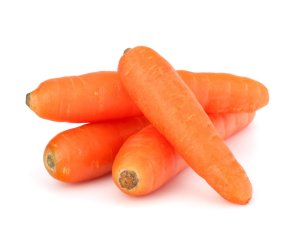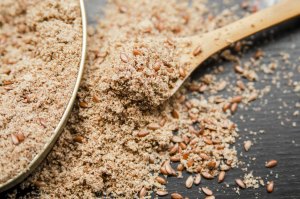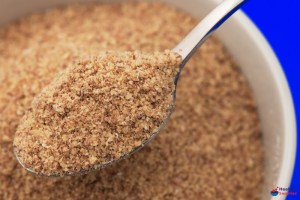Should dietary fiber be included in my your dog’s diet? Of course! Like humans and other animals, dietary fibers are essential to your dog’s overall health.
However, it should only be fed in specific quantities depending on his age and size. Moreover, only fiber consumed from healthy sources are beneficial.
In this article, we shall discuss the importance of fiber in your dog’s diet. We will also be discussing healthy sources of fiber
Why Do Dogs Need Dietary Fiber In Their Diet?

It is a common misconception among pet owners that dogs are carnivorous. This is, however, not true. Dogs are omnivorous, they derive nutrients from both animal and plant sources in order to thrive in health.
One good source of dietary fiber for dogs are vegetables. Vegetables help improve your pooch’s digestive system. It also further enhances the amino acids and other nutrients sound in meat and muscle meat that they consume. In addition, a healthy source of fiber is also beneficial to colon health. This is because fiber speeds up the elimination of harmful toxins that your dog has consumed.
Fermentation of soluble fiber in your dog’s gut produces short-chained fatty acids. These fatty acids will help prevent the overpopulation of gut bacteria. A healthy population of healthy gut flora is essentially important. This is because an imbalance of microbes in the intestines can lead to several health issues such as weight gain, high blood sugar and other disorders.
Benefits Of Consuming Dietary Fibers
Weight loss or management
Fiber can help lower calorie density. This means that your pooch will feel fuller faster while consuming fewer calories. Despite that, it does not mean a high dietary fiber diet would equate to weight loss. You should regulate the portion and size of your dog’s meal.
Consult your veterinarian before making any adjustments to your dog’s diet. This is so to ensure that they will still be getting the essential nutrients they need for a healthy lifestyle.
You can read here to discover more about what you can possibly do if your dogs are overweight.
Manage Diabetes
Fiber helps to regulate blood glucose levels and reduce fluctuations.
Dental Health
Reduce accumulation of dental plaque and tartar. You can also ensure good dental of your dogs by giving them dental chews treats.
Anti-Inflammatory Properties
Fiber promotes the overall condition of cellular functions. The cells become anti-inflammatory, healing cells that are essential for recovery from infections.
Improves Overall Gut Health
Fiber functions to absorb excess water in the intestines. It then helps to boost bowel regularity and produce firm, formed stools. This reduces constipation.
Now that you have some understanding as to why dietary fiber is essential for your dog’s health, you might question: “How should I identify dietary fiber imbalance in my pooch?”
Read on in the next section to find out more!
But, before you continue reading, you can also check out foods that are formulated specifically to target your dog’s gut health.
Identifying Dietary Fiber Imbalance In Dogs
Fiber imbalance might be a very common problem if your dogs are feeding on high protein diets. Consuming excess fiber can cause health issues, this is because their body will have difficulty absorbing minerals that are essential to their health. Below are some signs to take notice of in order to conclude if your dog has a fiber deficiency.
- Constipation
- Watery stools (diarrhoea)
- Increased stool frequency, urgency to defecate
However, the final diagnosis of fiber imbalance should always come from your veterinarian. Your vet might also be the best option to recommend you mitigating diets to help your dog!
Healthy Sources Of Dietary Fiber For Dogs
Apples

As common as apples are, they are high in vitamin and fiber content. However, before you feed them to your pooch, make sure to remove the core and seeds. This is because the apple seeds contain amygdalin which released cyanide into the bloodstream. Large consumption of the latter would be toxic to animals and humans. Moreover, the core and seeds are choking hazards, hence, it is necessary to remove them before feeding!
Broccoli

Broccolis are safe for consumption in dogs. Not only do they contain dietary fiber for your dog’s health, Broccoli also contains a plethora of trace minerals (e.g. potassium and manganese) and essential vitamins (e.g. vitamin C, K1, B9) that are beneficial for dogs.
Carrots

A great alternative chew treat for your dogs dental health. Carrots are rich in fiber and other nutrients. These include beta-carotene, a powerful antioxidant that aids in modulating cellular responses.
A great alternative chew treat for your dogs dental health. Carrots are rich in fiber and other nutrients. These include beta-carotene, a powerful antioxidant that aids in modulating cellular responses.
Kale

Did you know kale is not only a superfood to you but also your canine pal? It is a superfood for its optimal balance of nutrients with minimal calories. Kale is a great source of fiber. It is also full of essential nutrients and minerals that are beneficial for your dog’s health.
In addition, the phytonutrients in kale can also help boost your dog’s immunity. They also provide anti-cancer and antioxidants properties to help reduce free-radical damage of cell membranes and retina and cardiovascular health.
Kelp

Kelp is a great addition to any dog’s diet due to its high fiber content. Furthermore, it is easy to digest and can improve your pooch’s overall gastrointestinal health. Kelp is also beneficial for dogs with skin allergies, it is able to improve the general condition of their skin and coat.
Milled Flax Seed

Flaxseeds are high in fiber content. However, milled flax seeds are more recommended than whole flax seeds. Because milled flax seeds are in powder form, it is easier to digest and absorb the nutrients. Furthermore, fibers and nutrients will not get digested if whole flax seeds are consumed instead.
There are essentially two types of fiber in flax seed, soluble and insoluble. Whole flax seeds can only provide insoluble fibers due to its outer layer shell. It is the role of insoluble fibers that aids in regulating bowel movements. Milled flax seeds provide both types of fibers. They also contain nutrients such as protein, iron, omega-3 oil.
In addition, milled flax seeds are also a great source of lignans, which are powerful antioxidants that can help maintain healthy blood cholesterol level. Soluble fiber in particular is especially important for regulating bowel movement. This is because fibers will bind with biles produced by the liver in the small intestines. Gastrointestinal diseases may arise if the aforementioned does not happen.
Pumpkin

Belonging to the squash (cucurbita) family, pumpkin is another great source of fiber. Along with fiber, pumpkin is also enriched with other nutrients.
It is safe of you to feed your dog both fresh and plain canned pumpkin. However, canned pumpkin contains a higher concentration of fiber than fresh pumpkins. This is mainly due to a higher water content present in fresh pumpkin. Keep in mind that spiced or flavoured pumpkin should not be fed to your dogs due to the possible presence of additives.
Other than fiber, pumpkins are also enriched with nutrients such as vitamin A and C, which supports their immune system and vision. Minerals such as zinc, beta-carotene, iron and potassium can also be found in the list of nutrients in pumpkin.
Wheat Germ

Wheat germ is also high in fiber content. Although it is commonly removed from most processed wheat products, it is, however enriched with essential nutrients and minerals. While fiber helps to maintain a regular and healthy bowel movement, it also regulates blood cholesterol levels.
Other than fiber, wheat germ are also enriched with nutritional values such as proteins, healthy fats and minerals such as magnesium, zinc and potassium. In addition, it also contains vitamin E, a crucial nutrient with antioxidant properties that can help reduce free radical damage in the body. It is essential for your dog’s health as wheat germs are able to boost their cardiovascular and overall health.
It is important to add healthy sources of fiber to your dog’s diet so that they live a long and healthy life. Whether you are feeding your dog a raw, dry or wet food diet, it is important to make sure that they are getting all the nutrients they need to thrive!
Now that you have some understanding as to why fiber is essential to your dog’s health, you should start adding them to their diets now! However, you should always speak to your vet before making any adjustments to your dog’s diet. In addition to fiber, you should also ensure that they are getting the essential vitamins, minerals and nutrients they need to have a healthy lifestyle!

